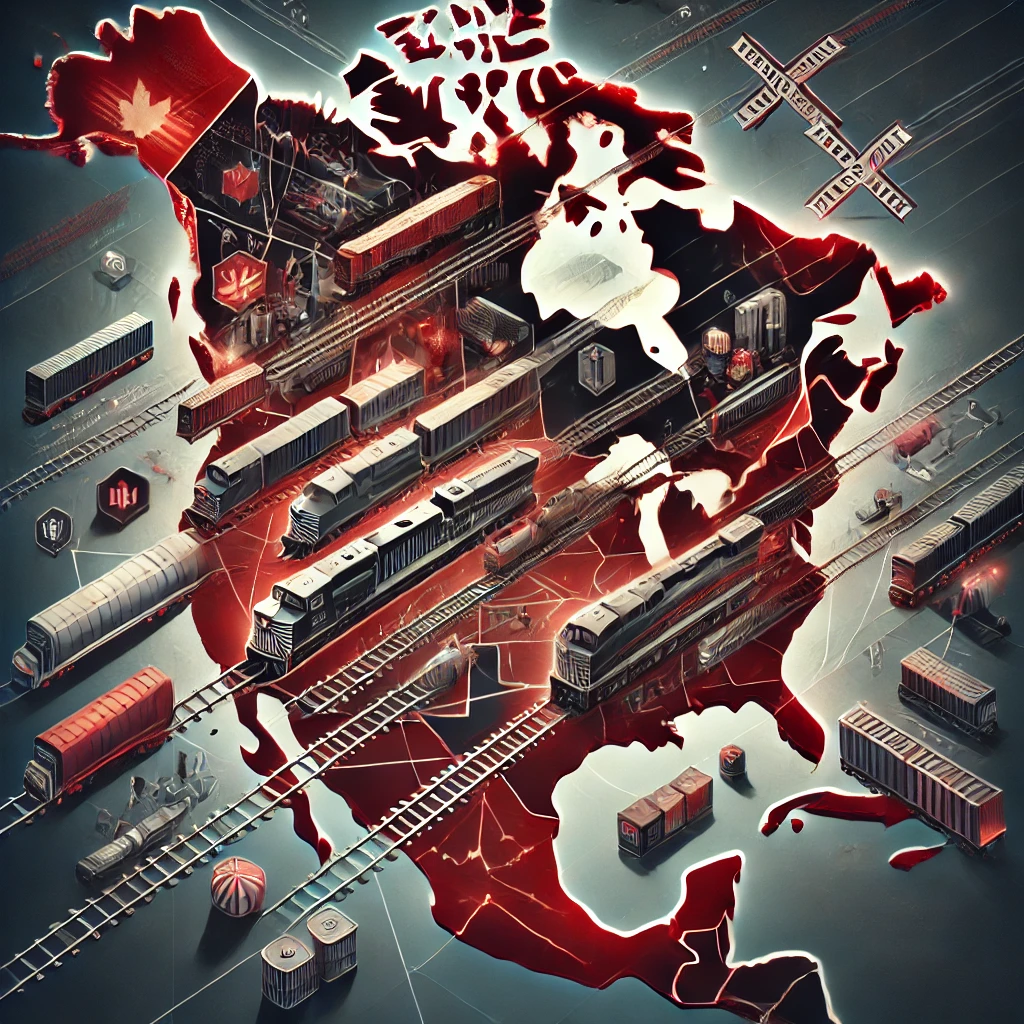As the labor dispute between Canadian National Railway (CNI) and Canadian Pacific Kansas City (CP) intensifies, both companies are preparing for a possible lockout of engineers and conductors on August 22. The Canadian Industrial Relations Board has allowed this action, stating it won’t threaten public safety, but the potential disruption could severely impact both Canadian and U.S. economies, especially in key sectors like agriculture, mining, and hazardous materials.
Impact on Industries:
The potential work stoppage is particularly concerning for industries that rely heavily on rail transport. CNI estimates that around 80% of its business could be affected, while CP anticipates a 45% to 50% impact. Key commodities such as grain, potash, coal, and chemicals are at risk, which could cause significant economic damage. The U.S. economy is also vulnerable, given the deep integration of the two countries’ supply chains.
Government Intervention:
Bank of America has suggested that if negotiations do not resolve the dispute before the deadline, expedited intervention by the Canadian government might become necessary. Both rail companies have already begun halting shipments of hazardous goods as a precaution. Despite the cooling-off period ordered by the Canadian Industrial Relations Board, the likelihood of a work stoppage remains high.
Conclusion:
With the deadline approaching, the stakes are high for both Canada and the U.S. A prolonged disruption could lead to significant economic consequences, making swift resolution crucial. The situation highlights the critical role of rail transport in North American trade and the potential ripple effects of labor disputes on global supply chains.
